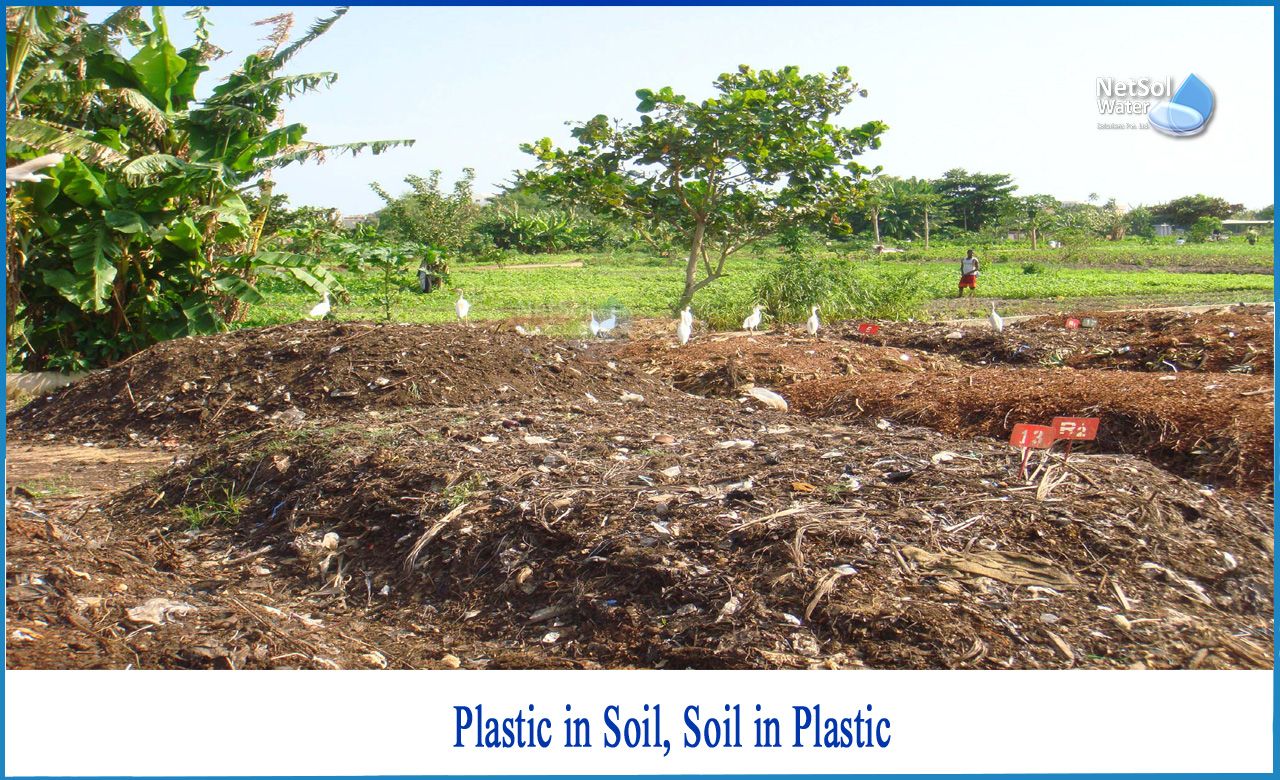What happens when plastic is mixed with soil?
Plastics in soils is a worldwide issue that frequently occurs in conjunction with intensive agriculture. According to experts, it can be found all over the world, from Asia to North America to Africa. In the next years, stemming the tide will be critical. Since the early 1950s, researchers estimate that more than 8.3 billion tonnes of plastic have been created, with the worldwide volume of plastic garbage continuing to grow.
Most of the plastic that ends up in the soil is single-use. Plastic mulch films, which are used around plants to keep the soil moist, and plastic-encapsulated, slow-release fertilisers are two common sources. Films for greenhouses and silage, shade and protection nets, and drip irrigation are among the other plastic items available.Many farmers are turning to agricultural plastics, which, can extend growing seasons, reduce pesticide use, protect plants from bad weather, enhance water efficiency, and boost yields by up to 60%.
Several of these plastics degrade into microplastics (particles smaller than 5mm) before dissolving further into nanoparticles (particles smaller than 0.1 micrometre). These substances can then contaminate the soil and groundwater systems.
An idea about the abundance and abundance of adversity_
Plastic bag litter affects us all, regardless of where we live. Plastic bags litter our streets, are entangled in our trees, and float in our rivers, dams, and oceans. Plastic bag litter is upsetting our delicately balanced environment more and more every day.
Every day, our terrestrial wildlife suffers.While munching on grass, our fauna consumes plastic. The chemicals used to produce the plastic cause intestinal blockages and toxicity. These issues frequently result in a protracted and agonising death. When plastic gets lodged in an animal's digestive track, it makes them feel full, causing severe malnutrition or death from famine.
It not only endangers our animals and causes them to swallow the plastic, but it also has an impact on our soil. When plastic bags break down in our soil, harmful substances are released. Only a small percentage of the plastic we throw away each day is recycled. Much of it ends up in landfills, where harmful compounds can leach into the soil and water.
Plastic contaminants have been found in our tap water
Microplastics in soils, sediments, and waters, according to researchers, could have a long-term harmful influence on our ecosystems. Microplastic pollution on land is considered to be substantially higher than microplastic pollution in the sea.
Conclusion: Facts about soil pollution
Soil is a non-renewable resource that is susceptible to further degradation.
One of the most serious consequences of environmental pollution is that the chemicals in the soil pollute the crops cultivated on the land, as well as the groundwater used for drinking.
The same contaminated soil has the potential to seep into enormous bodies of water, wreaking havoc on the ecology and posing a major environmental threat.
Because there are several types of plastic with varied chemical compositions, and recycled plastics can be polluted by mixing types, only a small portion of our plastic trash is recycled.
Soil contamination has an impact on the food we eat, the water we drink, the air we breathe, and the health of the people who live in it.
Netsol Water is Greater Noida-based leading water & wastewater treatment plant manufacturer. We are industry's most demanding company based on client review and work quality. We are known as best commercial RO plant manufacturers, industrial RO plant manufacturer, sewage treatment plant manufacturer, Water Softener Plant Manufacturers and effluent treatment plant manufacturers. Apart from this 24x7 customer support is our USP. Call on +91-9650608473, or write us at enquiry@netsolwater.com for any support, inquiry or product-purchase related query.



